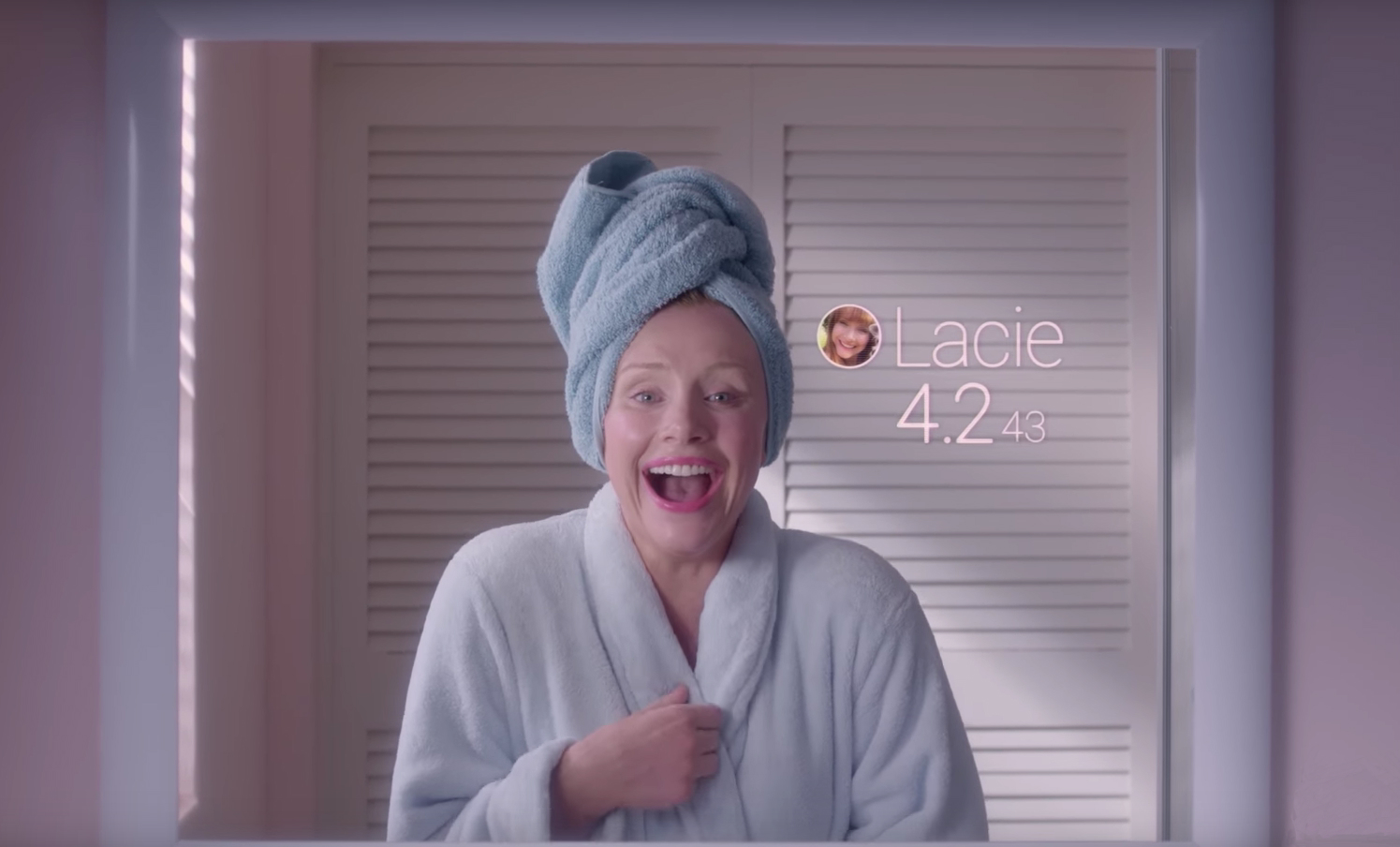Black Mirror’s rating system is here – and it’ll transform marketing
Realestate.com.au’s chief inventor, Nigel Dalton, tells retailers that the secret to surviving in 2018 is to build your business around time, transparency and trust
Perhaps the most talked-about episode of Black Mirror – Netflix’s dystopian drama that predicts how technology could change our world – is the premiere of its third season, entitled Nosedive. In this instalment, people mark each other out of five on their smartphones after every social interaction.
This affects Lacie (Bryce Dallas Howard, Jurassic World), who needs to bump up her average rating to a 4.5 in order to move into a swanky new apartment she’s been eyeing up.

In Black Mirror episode Nosedive, citizens including Lacie rate each other out of five
“The home only takes a certain class of people,” explains Nigel Dalton, from real-world property company REA, which operates realestate.com.au. “But she currently lives with her loser brother who is a ‘2’. She has to figure out, ‘Do I lose him to get the place?’


Nice one Nigel!
Time and transparency are key!
Also incidentally, this content from REA is far superior step up on the odious dribble that Steve C regularly shares as ‘insights’ on LinkedIn.
Well done for redeeming yourselves!